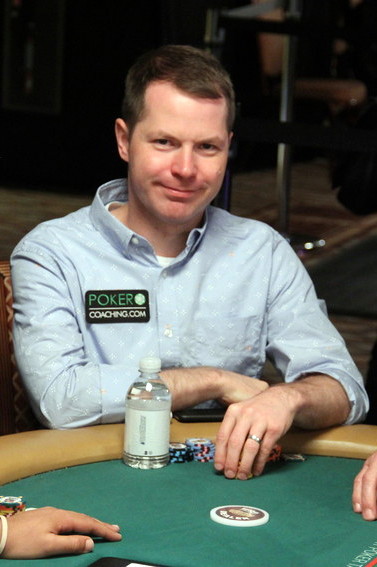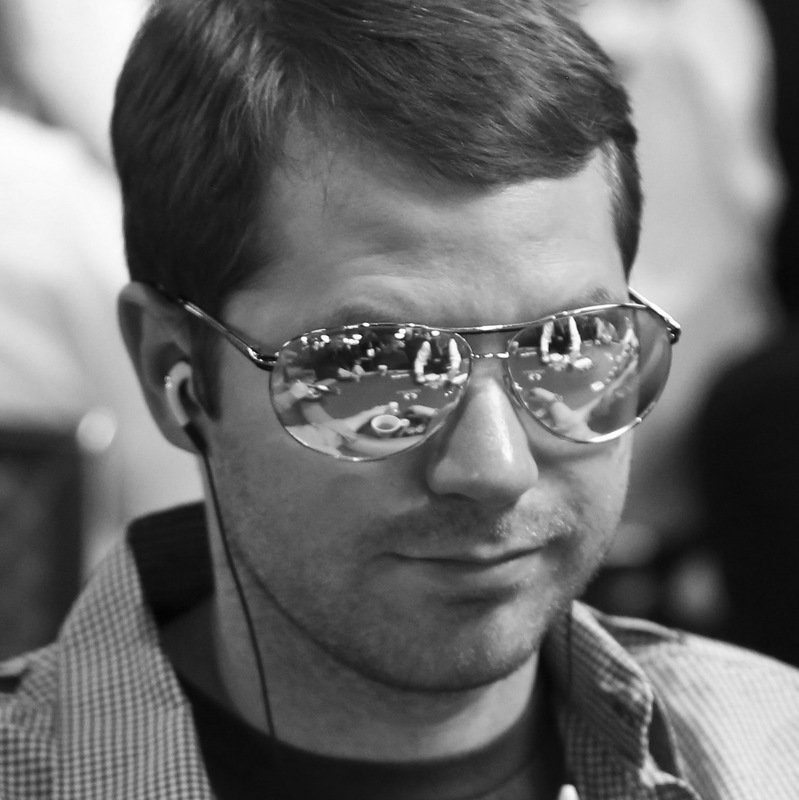






Losing Doesn’t Have To Be Painfulby Jonathan Little | Published: Sep 09, 2020 |
|
|
Card Player Magazine, available in print and online, covers poker strategy, poker news, online and casino poker, and poker legislation. Sign up today for a digital subscription to access more than 800 magazine issues and get 26 new issues per year!
 I am in the process of writing a complete, in-depth guide to tournament poker and I just wrote this section about dealing with loss. I would love to hear what you think about it on Twitter @JonathanLittle.
I am in the process of writing a complete, in-depth guide to tournament poker and I just wrote this section about dealing with loss. I would love to hear what you think about it on Twitter @JonathanLittle.
Losing is never enjoyable. However, it doesn’t have to be painful. There are various mindset shifts you can make to minimize the pain to the point that it is essentially irrelevant.
Most people never give themselves a chance to make it as a poker player because when they lose, they get sad, go on tilt, or quit. The most important thing you can do when playing tournaments for a living is to deny yourself an emotional connection to any individual tournament or series of tournaments. People often talk about their “tournament life” and how it is of the utmost importance to preserve it. They usually blind off, conceding any chance of winning a tournament they might have won if they had risked death a few times.
Remember, any individual tournament as just one of the thousands of tournaments you will play over the course of your life. I was lucky in that I developed this mentality early due to playing thousands of sit-n-go tournaments each month. If I lost a game (which I knew would happen about 2,600 times each month based on my volume), I would simply open another game and play again. It was not a big deal.
Live poker is quite a bit different because you may fly across the country or world to play one tournament, forcing you to be at least somewhat invested in it. That said, the concept still applies. When you lose, don’t beat yourself up, especially if you did nothing wrong.
A tournament is just a tournament. Losing a few (or a lot) of them in a row does not make you a loser at life. Experiencing losses from poker, which is certain to happen, does not mean you are a loser at life, just like winning a tournament does not make you a winner at life. Do not associate losing with failing, because they are completely different things.
I vividly remember one instance where I was emotionally invested in a tournament. In the World Poker Tour main event at Foxwoods, six months after winning my second WPT title, which I also won at Foxwoods, I busted in 55th place. A win would have given me my third WPT title, made me the first player to win back-to-back main events at the same casino, and made me a huge favorite to win the WPT Player of the Year title two years in a row.
Instead of making history, I lost. But I was fine with the result. I played my best and made good use of every situation. That usually will just not be enough to bring home the title most of the time due to the way tournaments are structured. Once you accept that most of the time there simply is not anything you can do, you will learn to see losing in a more positive light.
Many recreational players comment to me about how it is difficult to have this mindset when they do not get to play too often. I used to think they were silly, but after I had my two children and stopped playing so many live tournaments, their concerns became more real to me. That being said, just because you have other things going on in life and do not get to play many tournaments does not mean you should play the ones you get to play poorly. Quite often, the right play is to be aggressive, and if your mindset stops you from making the right play, you must accept that you are giving up equity in exchange for getting to sit at a table for a little while longer. I don’t know about you, but I have better things to do than sit at a table and give away my money. Instead of giving away your money, fix your mindset and realize poker is a long-run game.
Make a point to play well within your bankroll. A full discussion on bankroll management will be presented in the book, but for now know that the players who complain the most about losses are usually playing well above their means. For example, if you have an $800,000 bankroll and lose a $10,000 buy-in tournament, it is not too big of a deal because you still have 79 buy-ins left. If you have a $5,000 bankroll and lose a $1,000 buy-in tournament, you just lost 20 percent of your bankroll, which can (and probably should) cause great emotional trauma. The solution to this problem is to be smart and play within your bankroll.
Studying the math inherent to poker tournaments may help you get accustomed to losing. If you play 1,000 tournaments, even if you get in the money quite frequently, you will only cash 25 percent of the time, which means you will not get in the money 75 percent of the time. Many of the best players only get in the money roughly 18 percent of the time, which means 82 percent of the time they walk away with nothing. However, when they do get in the money, they usually have a large chip stack that gives them a chance to win one of the top prizes, more than making up for all the small losses.
Another way to view poker tournaments is as a lottery where when you buy in, you get some number of tickets based on your skill level. If you have an edge, you get more tickets and if you are at a disadvantage, you get fewer tickets. As a simplistic example, a breakeven player gets 10 tickets, a player with 50 percent ROI gets 15 tickets, and a player with -30 percent ROI gets 7 tickets. Everyone then shows up, plays their best, and a winner is chosen at random. As long as you have a proper bankroll and are playing with an edge, even if there are tons of tickets to pull from, you should be thrilled to be involved, even though you will lose most of the time.
Finally, make a point to get some experience. It is hard to know what a long losing streak feels like until you have been there. I have lost $150,000 at poker tournaments in two different years. While this may seem like a huge amount to lose, it was only 30 buy-ins or so, which is a normal, quite mild, downswing. I have also won $2 million in two different years, which more than makes up for the losing years.
I am incredibly lucky in that I had terrible results in my first year as a live tournament pro. If I had started off on a huge winning streak, I may not have been adequately prepared to handle the even worse downswings that would come later. Many young players start their careers strong and end up going broke because they have no clue how to handle losing streaks. If you know a losing streak will come at some point, you will be prepared when it inevitably strikes. ♠
 Jonathan Little is a professional poker player and best-selling poker author with over $7,000,000 in live tournament earnings. If you want to learn how to play fundamentally sound poker and increase your win rate, check out PokerCoaching.com. Click here to try PokerCoaching.com for free.
Jonathan Little is a professional poker player and best-selling poker author with over $7,000,000 in live tournament earnings. If you want to learn how to play fundamentally sound poker and increase your win rate, check out PokerCoaching.com. Click here to try PokerCoaching.com for free.
Features
The Inside Straight
Strategies & Analysis